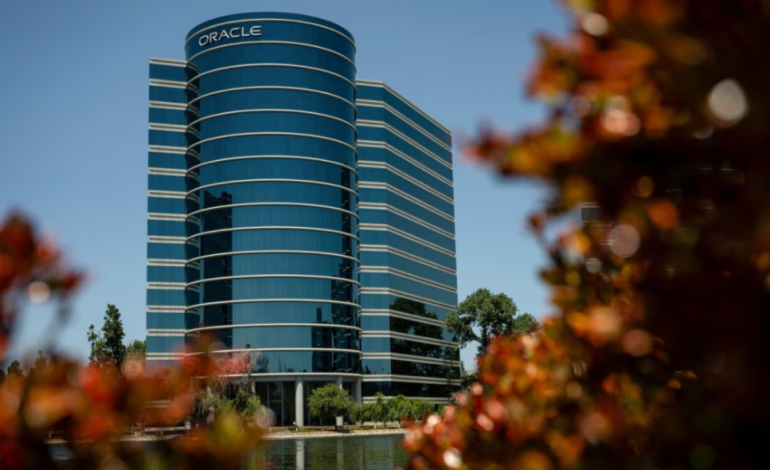Oracle shares rose more than 8% in after-hours trading on Wednesday after the enterprise software and cloud company reported earnings and revenue that exceeded analyst expectations and forecast strong growth in the year ahead.
For the fiscal fourth quarter ending May 31, Oracle posted adjusted earnings of $1.70 per share, topping Wall Street estimates of $1.64. Revenue came in at $15.9 billion, an 11% increase year over year and above the $15.59 billion forecast by analysts. Net income rose to $3.43 billion from $3.14 billion in the same quarter last year.
CEO Safra Catz projected that Oracle’s total cloud revenue—including infrastructure and applications—will grow more than 40% in fiscal year 2026, up from 24% in fiscal 2025. Cloud infrastructure alone is expected to grow over 70% next year, compared with 52% growth in the most recent quarter. Catz also indicated that Oracle is likely to exceed the $104 billion revenue target set for fiscal 2029.
“Oracle is well on its way to being not only the world’s largest cloud application company, but also one of the world’s largest cloud infrastructure companies,” Catz said.
Cloud services and license support revenue totaled $11.7 billion in the quarter, slightly ahead of consensus expectations, while cloud and on-premises license revenue rose 9% year over year to $2.01 billion.
Oracle Cloud Infrastructure (OCI), a key area of investment for the company, generated $3 billion in revenue—representing 52% growth and a slight uptick from the prior quarter. The division competes with major cloud providers such as Amazon Web Services and Microsoft Azure and has become a cornerstone of Oracle’s AI-focused expansion strategy.
Chairman and CTO Larry Ellison said demand for cloud capacity remains exceptionally strong. He noted that one unnamed client had recently requested all available cloud capacity, requiring Oracle to reallocate resources.
“We’ve never had an order like that before,” he said. “Demand seems almost insatiable.”
Oracle also highlighted several strategic developments during the quarter, including cloud partnerships with IBM and the Cleveland Clinic, and the announcement of a new AI-focused health platform in collaboration with UAE-based G42. In addition, SoftBank disclosed plans to acquire Ampere, a chip design firm backed by Oracle, for $6.5 billion.
The company’s remaining performance obligations (RPO)—a measure of contracted but not yet recognized revenue—grew 41% to $138 billion, further indicating momentum in its enterprise cloud business.
Capital expenditures rose to more than $21 billion in fiscal 2025, up sharply from under $7 billion the previous year. Catz said spending is expected to exceed $25 billion in fiscal 2026 as Oracle expands its data center footprint to meet demand.
Oracle’s results come amid growing optimism in the tech sector and mark a turnaround from earlier this year when investor concerns about rising AI-related costs pressured the stock. Oracle shares have gained over 6% year-to-date and are up 44% over the past 12 months.
CNBC, the Wall Street Journal, and Investor’s Business Daily contributed to this report.









The latest news in your social feeds
Subscribe to our social media platforms to stay tuned